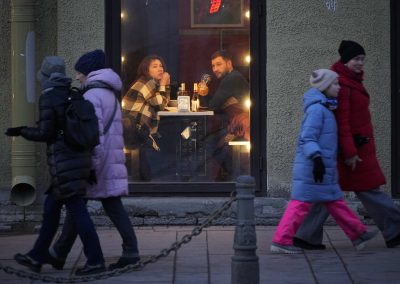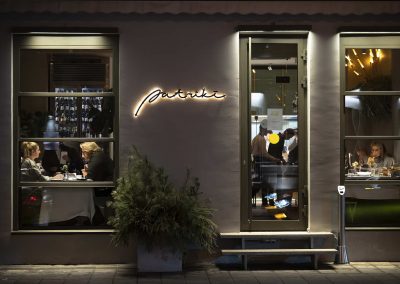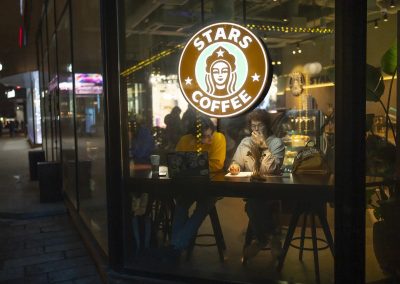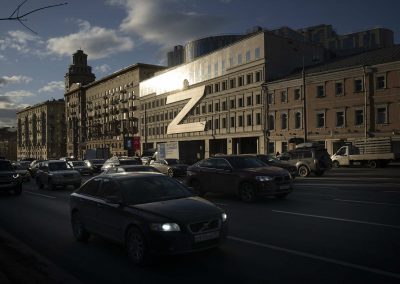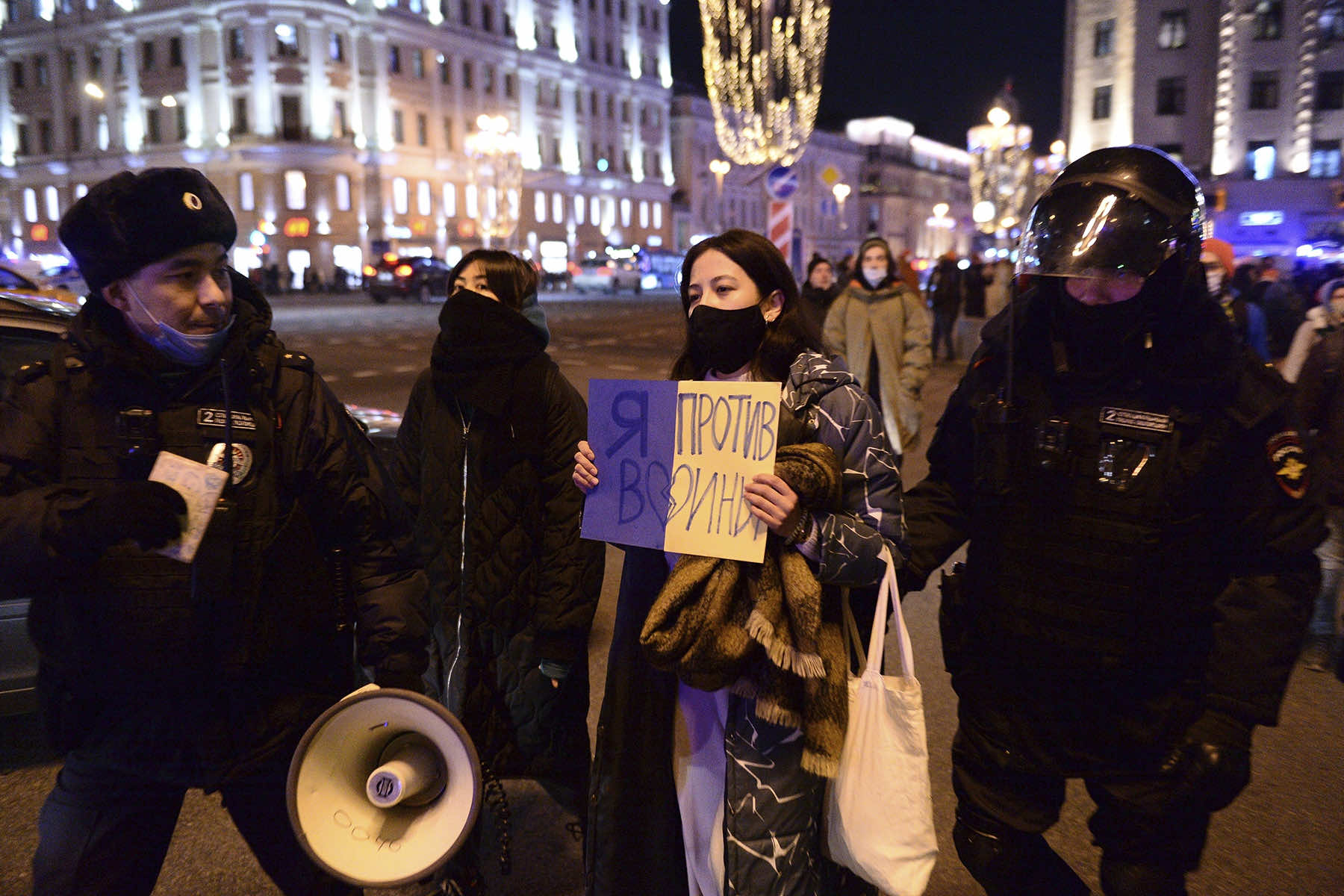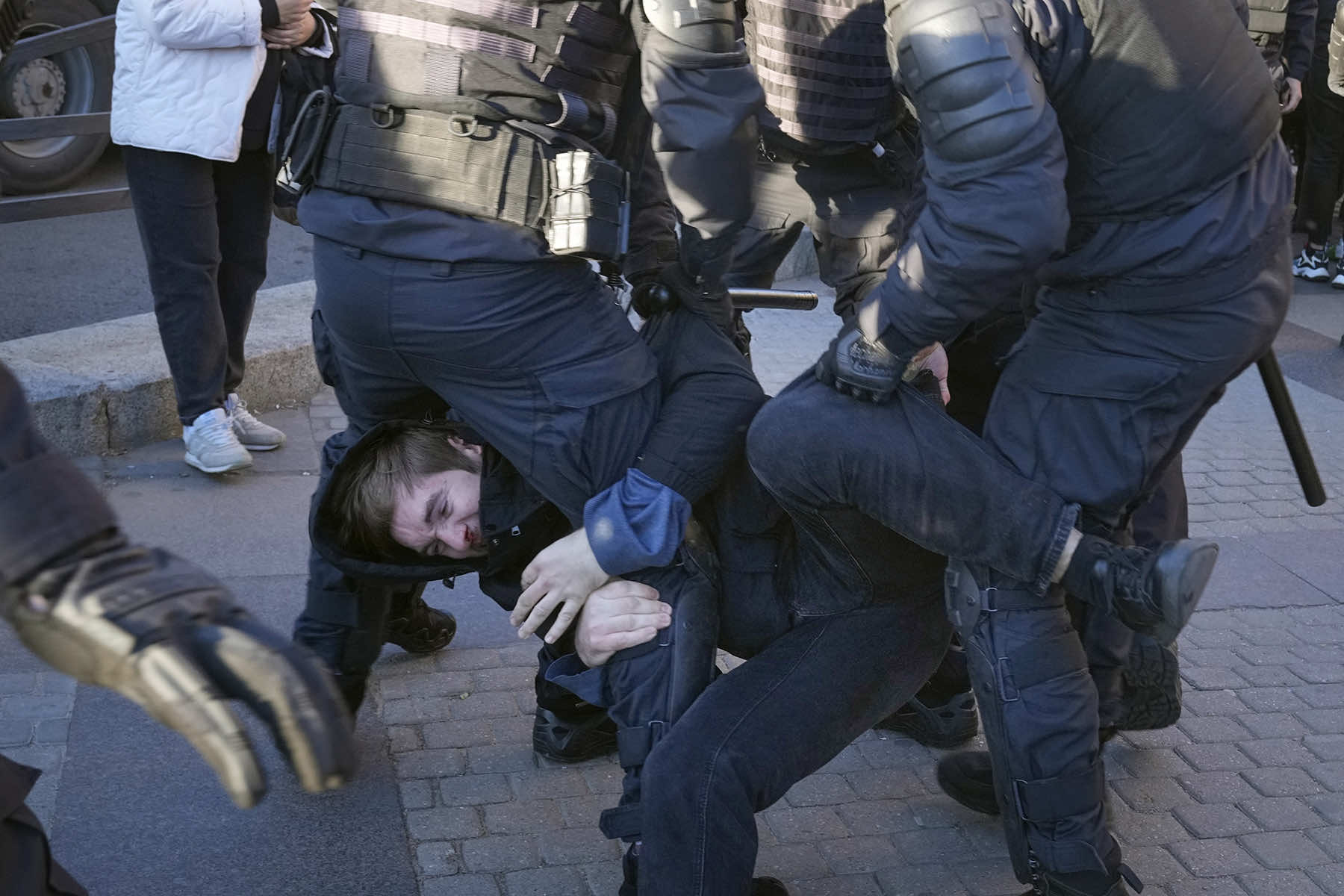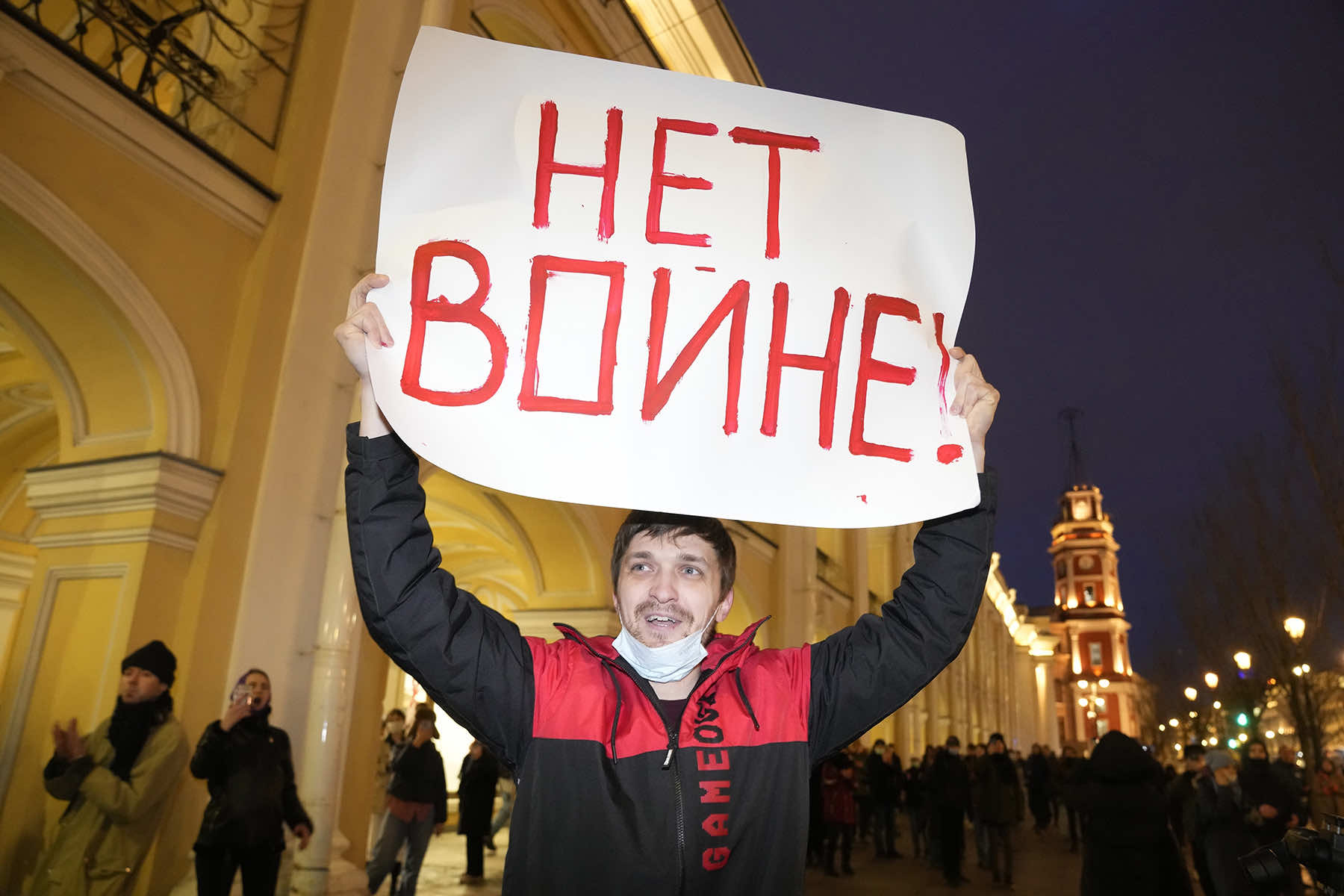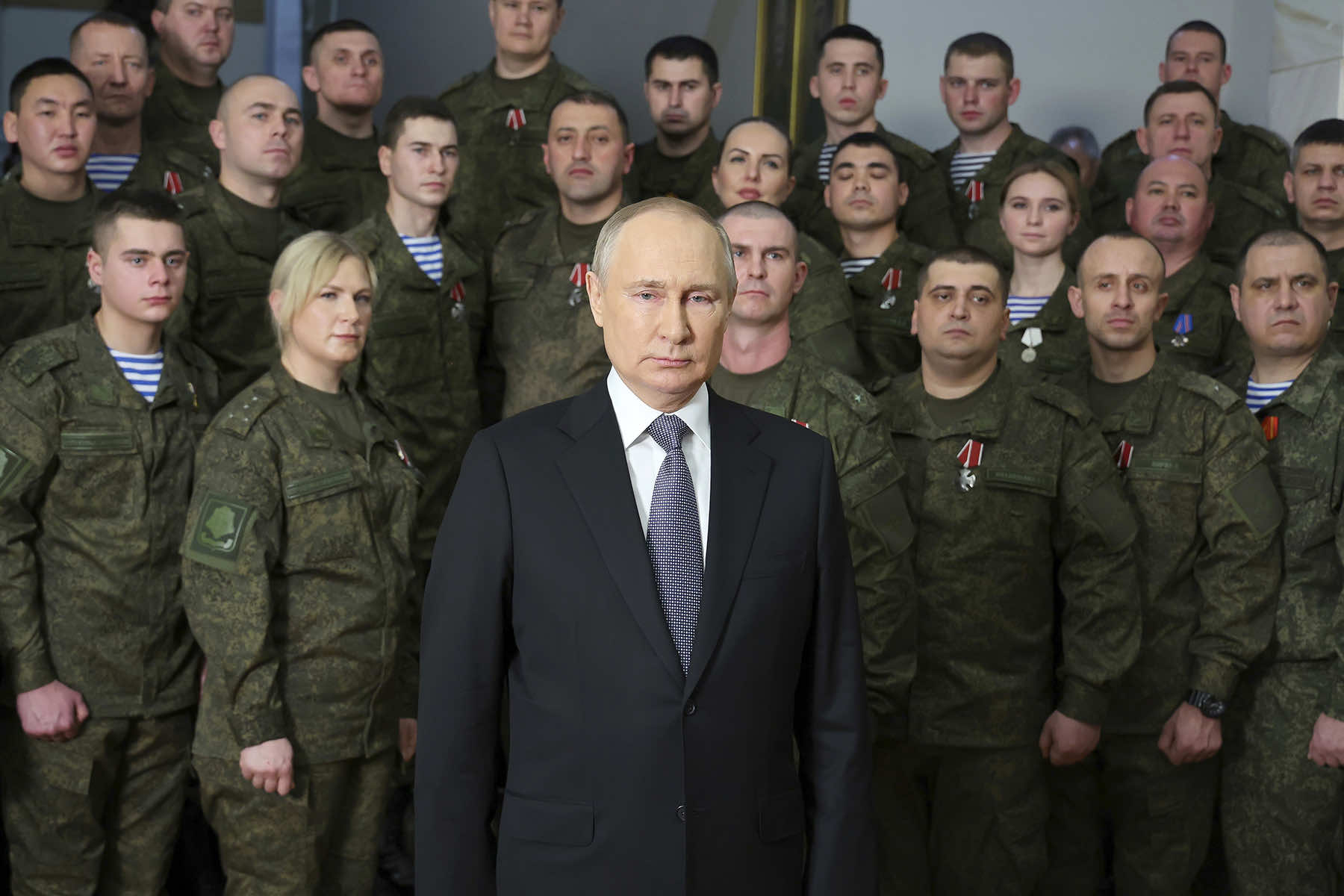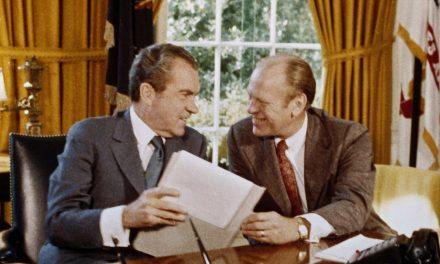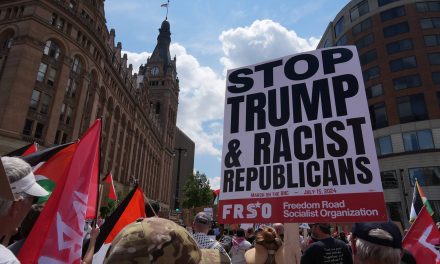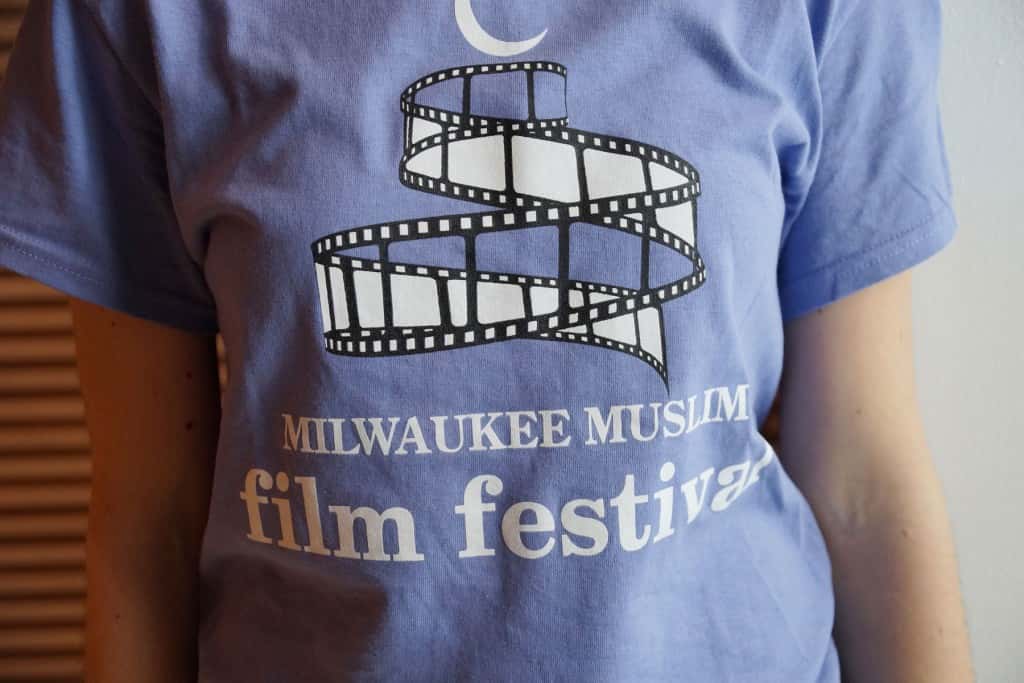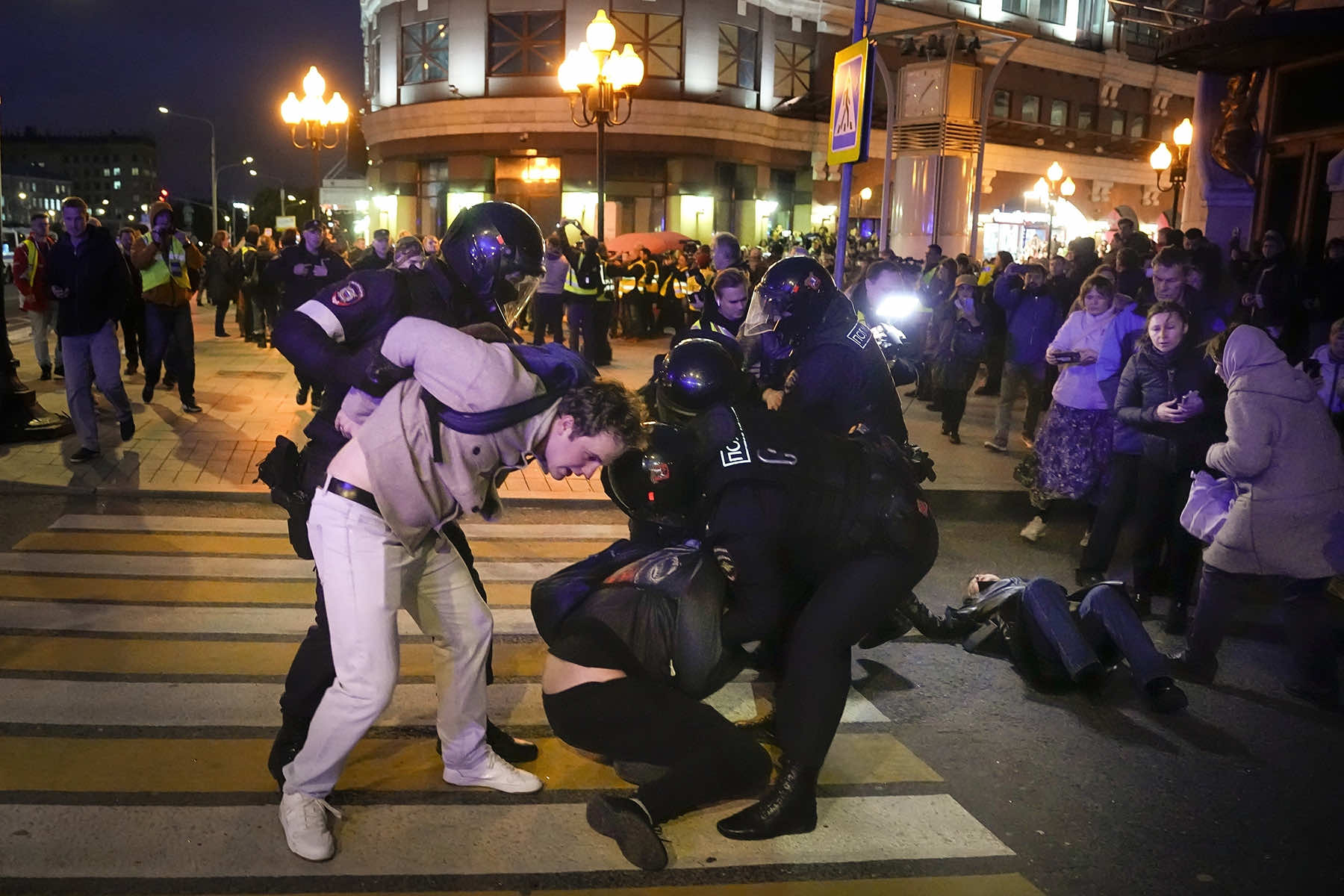
Moscow’s nights display few signs of a nation at war. Cheerful crowds packed restaurants and bars in the Sretenka neighborhood on a recent Saturday night, watched by officers marked as “tourist police.” Nearby, a top-hatted guide led about 40 sightseers to a 300-year-old church.
There is only an occasional “Z” — the symbol of Russia’s “special military operation,” as the Ukraine invasion is officially known — seen on a building or a shuttered store abandoned by a Western retailer. A poster of a stern-faced soldier, with the slogan “Glory to the heroes of Russia,” is a reminder the conflict has dragged on for a year.
Western stores are gone, but customers can still buy their products — or knockoffs sold under a Russian name or branding. The painful, bruising changes to Russian life require more effort to see.
A broad government crackdown has silenced dissent, with political opponents imprisoned or fleeing abroad. Families have been torn apart by the first mobilization of reservists since World War II.
State TV spews hatred against the West and reassuring messages that much of the world still is with Russia. And Russia’s battlefield deaths are in the thousands.
QUASHING THE CRITICS
“Indeed, the war has ruined many lives — including ours,” Sophia Subbotina of St. Petersburg told The Associated Press.
Twice a week, she visits a detention center to bring food and medicine to her partner, Sasha Skochilenko, an artist and musician with serious health issues. Skochilenko was arrested in April for replacing supermarket price tags with antiwar slogans.
She is charged with spreading false information about the military, one of President Vladimir Putin’s new laws that effectively criminalize public expression against the war. The crackdown has been immediate, ruthless and unparalleled in post-Soviet Russia.
Media cannot call it a “war,” and protesters using that word on placards are hit with steep fines. Most who took to the streets were swiftly arrested. Rallies fizzled.
Independent news sites were blocked, as were Facebook, Instagram and Twitter. A prominent radio station was taken off the air. The Novaya Gazeta newspaper, led by 2021 Nobel Peace Prize laureate Dmitry Muratov, lost its license.
Skochilenko, who says she is not an activist but simply someone horrified by war, faces up to 10 years in prison.
Prominent Putin critics either left Russia or were arrested: Ilya Yashin got 8½ years, Vladimir Kara-Murza is jailed awaiting trial and Alexei Navalny remains in prison.
Entertainers opposing the war quickly lost work, with plays and concerts canceled.
“The fact that Putin has managed to intimidate a significant part of our society is hard to deny,” Yashin told AP from jail last year.
PUSHING THE GOVERNMENT LINE
The purge of critics was followed by a splurge of propaganda. State TV suspended some entertainment shows and expanded political and news programs to boost the narrative that Russia was ridding Ukraine of Nazis, a false claim Putin used as pretext for the invasion. Or that NATO is acting via puppets in Kyiv but that Moscow will prevail.
“A new structure of the world is emerging in front of our eyes,” proclaimed anchor Dmitry Kiselev in a December rant on his weekly show. “The planet is getting rid of Western leadership. Most of humanity is with us.”
These messages play well in Russia, says Denis Volkov, director of the country’s top independent pollster Levada Center: “The idea that NATO wants to ruin Russia or at least weaken … it has been сommonplace for three-fourths (of poll respondents) for many years.”
The Kremlin is pushing its narrative to the young. Schoolchildren were told to write letters to soldiers, and some schools designated “A Hero’s Desk” for graduates fighting in Ukraine.
In September, schools added a subject loosely translated as “Conversations about Important Things.” Lesson plans for eighth to 11th graders seen by AP describe Russia’s “special mission” of building a “multipolar world order.”
At least one teacher who refused to teach the lessons was fired. Although not mandatory, some parents whose children skip them face pressure from administrators or even police.
A fifth grader was accused of having a Ukraine-themed photo on social media and asking classmates about supporting the war, and she and her mother were detained briefly after administrators complained, said her lawyer, Nikolai Bobrinsky. When she skipped the new lessons, authorities apparently decided to make “an example” of her, he added.
SURVIVING SANCTIONS
The sanctions-hit economy outperformed expectations, thanks to record oil revenues of about $325 billion after the war sent energy prices soaring. The Central Bank stabilized the plummeting ruble by raising interest rates, and the currency is stronger against the dollar than before the invasion.
McDonald’s, Ikea, Apple and others left Russia. The golden arches were replaced by Vkusno — i Tochka (“Tasty — Period”), while Starbucks became Stars Coffee, with essentially the same menus.
Visa and Mastercard halted services, but banks switched to the local MIR system, so existing cards continued to work in the country; those traveling abroad use cash. After the European Union banned flights from Russia, airline ticket prices rose and destinations became harder to reach. Foreign travel is now available to a privileged minority.
Sociologists say these changes hardly bothered most Russians, whose average monthly salary in 2022 was about $900. Only about a third have an international passport.
Inflation spiked nearly 12%, but Putin announced new benefits for families with children and increased pensions and the minimum wage by 10%.
MacBooks and iPhones are still easily available, and Muscovites say restaurants have Japanese fish, Spanish cheese, and French wine.
“Yes, it costs a bit more, but there’s no shortage,” said Vladimir, a resident who asked not to be fully identified for his own safety. “If you walk in the city center, you get the impression that nothing is happening. Lots of people are out and about on weekends. There are fewer people in cafes, but they are still there.”
Still, he admitted the capital seems emptier and people look sadder.
IN THE TRENCHES, OR WORSE
Perhaps the biggest shock came in September, when the Kremlin mobilized 300,000 reservists. Although billed as a “partial” call-up, the announcement sent panic through the country since most men under 65 — and some women — are formally part of the reserve.
Flights abroad sold out in hours and long lines formed at Russia’s border crossings. Hundreds of thousands were estimated to have left the country in the following weeks.
Natalia, a medical worker, left Moscow with her boyfriend after a summons was delivered to his mother. Their income was cut in half and she misses home, but they’ve decided to try it for a year, said the woman, who asked that her last name and location not be revealed for their safety.
“Between ourselves, we’re saying that once things calm down, we will be able to come back. But it wouldn’t resolve the rest of it. That huge snowball is rolling downhill, and nothing will be back (as it was),” Natalia said.
Draftees complained of poor living conditions at bases and shortages of gear. Their wives and mothers claimed they were deployed to the front without proper training or equipment and were quickly wounded.
A woman who is contesting her husband being drafted said her family life fell apart after she suddenly had to care for her children and frail mother-in-law.
“It was hard. I thought I’d lose my mind,” said the woman, who spoke on condition of anonymity because his legal case is continuing. Her husband came home on leave — suffering from pneumonia — and needs psychological care because he jumps at every loud sound, she said.
Vasily, a 33-year-old Muscovite, learned authorities tried twice this month to deliver a summons to a former apartment where he is officially registered. Although not sure if the summons was to draft him or to clear up his enlistment records, especially after a September attempt to deliver call-up papers, he doesn’t intend to find out.
“All my friends who went (to the enlistment office) to figure it out are in the trenches now, or worse,” added Vasily, who withheld his last name for his own safety.
Volkov, the pollster, said the dominating sentiment among Russians is that the war is “somewhere far away, it is not affecting us directly.”
While anxiety over the invasion and mobilization came and went over the year, “people started feeling again that it indeed doesn’t affect everyone. ‘We’re off the hook. Well, thank god, we’re moving on with our lives.'”
Some fear a new mobilization, which the Kremlin denies.
LIVES LOST
As the war became bogged down by defeats and setbacks, families got the worst news possible: a loved one was killed. The military has confirmed just over 6,000 deaths, but Western estimates are in the tens of thousands.
Putin promised generous compensation to families of those listed as killed in action — 12 million rubles (about $160,000).
In November, he met with a dozen mothers, which Russian media said were hand-picked among Kremlin supporters and officials, offering them propaganda statements to justify the loss of their sons.

